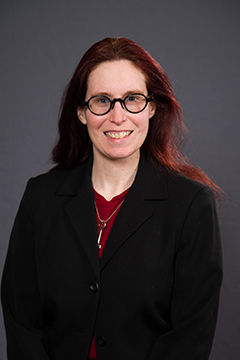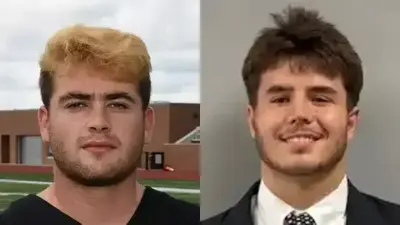When KT Lowe fell for a story that turned out to be “fake news” in 2016, the assistant librarian for Instruction at Indiana University East had to do something to help in the often uphill battle against misinformation.
She developed what would become an extremely popular “LibGuide” dealing with the subject of fake news. While LibGuides have long been a tool developed by librarians – targeted lesson plans to help students and the public get accurate information on a subject – the one she created because of the 2016 election has become an extremely popular choice for students, staff and the public at a time where finding accurate and minimally biased news can be challenging.
“As writer Neil Gaiman said, the internet will get you 10,000 answers; the librarian will get you the right one,” Lowe said. Embarrassed for believing an election story she discovered wasn’t accurate, Lowe immediately put to work her skills for research and verification of information.
“Misinformation is the dragon with the longest tail ever,” she said. “Misinformation is spread by government, people, and interest groups. People spread misinformation for a lot of reasons. Anytime you have people involved, there will always be bias. There is no such thing as an unbiased news source.”
It is possible, however, to find balance and mitigate bias by taking the right steps. One of her favorite tools is the SIFT method, originally developed by Michael Caulfield at the University of Washington. The steps are to stop, investigate the source of the information, find other coverage and perspectives, and trace to the reporting source. She encourages checking the source’s professional information, such as a LinkedIn profile.
“You should get an idea of who these people are. Use fact checking sources such as Media Bias Fact Check. And bias does not equal factual inaccuracy. You can be absolutely factual and absolutely biased.”
Noting a shift in recent years of “news” shows being more about opinions, the result has been those opinions taking the place of factual news. And one easy way to tell: “If the show has a person’s name in the title, it will consist mostly of an opinion.”
Lowe has done numerous presentations about the fake news topic and her LibGuide. “This particular one has been copied hundreds of times. It’s really very different from anything else we’ve done here. Most LibGuides we design are intended to represent our programs, our campus and are very specific to our campus. And then you have this one that is really public-focused.”
The guide she developed dedicated to fake news is likely the first on the subject. And it has been reused by many schools, colleges and public libraries throughout the United States and in other countries. “I have also received requests for use from librarians in Qatar and Shanghai, for example.”
Lowe also uses library databases to find information, as well as fact-checking tools such as FactCheck.org. She subscribes to numerous news sources, newsletters from the Poynter Institute and is a member of NAMLE – the National Association for Media Literacy Education. She said Google is a solid tool but only when used properly.
The challenge in her field and for those seeking Information is simply information literacy. “As a society we have access to unparalleled levels of information, and we add to that stockpile of information in large quantities daily. If the good information cannot be identified from poor quality information, however, it doesn’t matter how much information exists. Hence, my work tends to focus on trying to figure out how to get people – whether students, staff, faculty of community members – to understand the markers of quality in assessing information. I came to the field with one mindset, which was connecting people to information, and I’ve evolved into another — demonstrating what good information looks like.”
The Fake News LibGuide launched November 30, 2016, as a tool for a speech class. “After the election, and after my own experience with fake news, I realized students needed more, and the LibGuide was initially intended to meet that need. Its first day response was overwhelming; we received 147 hits in the first 24 hours,” she said, which would normally be a lot for a guide in an entire semester. “It signaled to us in the library that there was a need in the wider library community for material like this. It took off from there. The guide has currently notched over 144,000 views worldwide.”
Frances Yates, library director at IU East, said Lowe’s work is a significant contribution to alleviating misinformation in its many forms.
“Librarians throughout the United States and other countries use KT Lowe’s fake news resource guide as a trustworthy tool to help students navigate how to identify misinformation and critically evaluate sources,” Yates said. “These are essential skills for anyone who is interested in separating fact from opinion and developing their own viewpoints and perspectives based on reliable information. KT’s expertise is recognized by our IU East colleagues and community members.”
Lowe graduated from the University of Michigan in 2011 with a Master of Science in Information, and wasn’t planning a career as a librarian at the time. At first she was primarily interested in museum work – she spent her entire college career working in the campus art museum. After struggling to find work in the field, she applied for a librarian job and was hired. “That job was as a correctional librarian in a men’s facility in northern Michigan.” That led to a position in 2014 in academic librarianship before she came to IU East in 2015.
She has presented on the fake news topic for Allen County Public Library, Franklin County (Indiana) Public Library, the Miami University Institute for Retirement and the Indiana State Library. She has also presented research on the topic for the annual LOEX Information Literacy conference and the American Library Association Annual conference. In addition to programming for adults, however, she has also branched out into gamification. For school and campus programs, Lowe developed two games, one for 3rd-5th graders and one for incoming college students. “Ultimately, I think this topic is most effective when spread in non-academic environments and through as many channels and modalities as possible. It’s a public topic which needs a public approach,” she said.
Besides expanding her focus on fake news in recent years, she has recently begun studying protest music as a form of information. “Protests happen for a number of reasons, but one of them is to promote accurate information about a group of people or a social/sociopolitical issue.
Lowe said music, as activist and songwriter Joe Hill noted all the way back in 1914, is an effective carrier of information. His quote is worth reading in full: “A pamphlet, no matter how good, is never read more than once, but a song is learned by heart and repeated over and over; and I maintain that if a person can put out a few cold, common sense facts into a song and dress them up in a cloak of humor to take the dryness off them, he will succeed in reaching a great number of workers who are too unintelligent or too indifferent to read a pamphlet or an editorial in economic science.”
Meanwhile, Lowe said researchers make new discoveries about fake news regularly. “It’s still something like the Wild West when it comes to researching and understanding fake news. She expects to continue researching and presenting on the topic indefinitely. “It’s very exciting to be on the edge of new information, especially with regard to something that affects everyone so seriously.”
The public can hear from Lowe and faculty members first-hand this week during a panel discussion held in conjunction with Media Literacy Week, now through October 28.
The panel discussion on elections and misinformation is at 2 p.m. on Thursday, October 27, in the Campus Library, located in Hayes Hall, Room 142. The event is free and open to the public.
Panelists include Lowe, Scott Lee, associate professor of political science, and Andrea Quenette, associate professor of communication studies.
Discussion will include how voting behavior has changed as a result of COVID, civic engagement and how to identify misinformation. A blog on the program is available to read in advance.
 Original source can be found here.
Original source can be found here.


 Alerts Sign-up
Alerts Sign-up